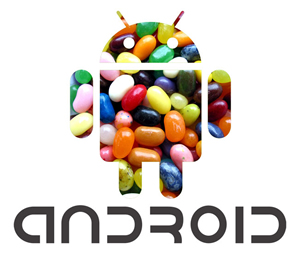 In a joint effort, Intel and Google are trying to get the Android 4.1, known as the Jellybean, to work on smartphones and tablets that run on the low powered Intel Atom processor. Intel quoted as much in a statement recently but the company didn’t reveal the likely timeframe as to when the porting will be complete. Currently, smartphones that are powered by Intel processors are only running the Android 2.3 or Gingerbread and are likely to get updates to Android 4.0 or Ice Cream Sandwich.
In a joint effort, Intel and Google are trying to get the Android 4.1, known as the Jellybean, to work on smartphones and tablets that run on the low powered Intel Atom processor. Intel quoted as much in a statement recently but the company didn’t reveal the likely timeframe as to when the porting will be complete. Currently, smartphones that are powered by Intel processors are only running the Android 2.3 or Gingerbread and are likely to get updates to Android 4.0 or Ice Cream Sandwich.
So far, several companies have released smartphones albeit limited models, running on Intel chipsets. Lava International and Orange have smartphones that run the Gingerbread OS while Lenovo released one phone in China that comes with a modified version of the OS while Motorola is using Intel and Android to come up with phones later this year. In both the smartphone and tablet market, Intel has a limited presence and the industry is dominated by ARM devices. The first ARM device to get Jellybean was the Nexus 7 tablet from Google and manufacturers such as HTC and Asus that use ARM processors for their smartphones and tablets are going to be offering updates to Jellybean soon. In addition to Intel, MIPS, which is a low cost alternate to ARM, is also trying to port the Jellybean to devices that run on its chipsets.
Intel happens to be one of the biggest supporters Android has in the industry and is using the operating system on devices that run on its Atom processor, which are codenamed Medfield. So far, only a few smartphones and tablets have the Medfield chips but Vizio recently announced that it will be using them in a 10-inch tablet pretty soon.
The next generation of Intel’s Atom processor, which is called Clover Trail, is apparently designed exclusively for devices which are going to run on the Windows 8 OS. In fact, Intel said it has no plans to port Android for the Clover Trail and is trying to expand its base in the tablet market with the new chipset revolving around its long time partner Microsoft. However, Microsoft has also announced Windows RT for use in ARM devices.
Currently, ARM is well ahead of Intel in terms of devices running Jellybean while the latter is trying to attract developers to write games and apps through tournaments and cash prizes. Google has said that it will release a Platform Development Kit to hardware companies for the purpose of ease of customization.